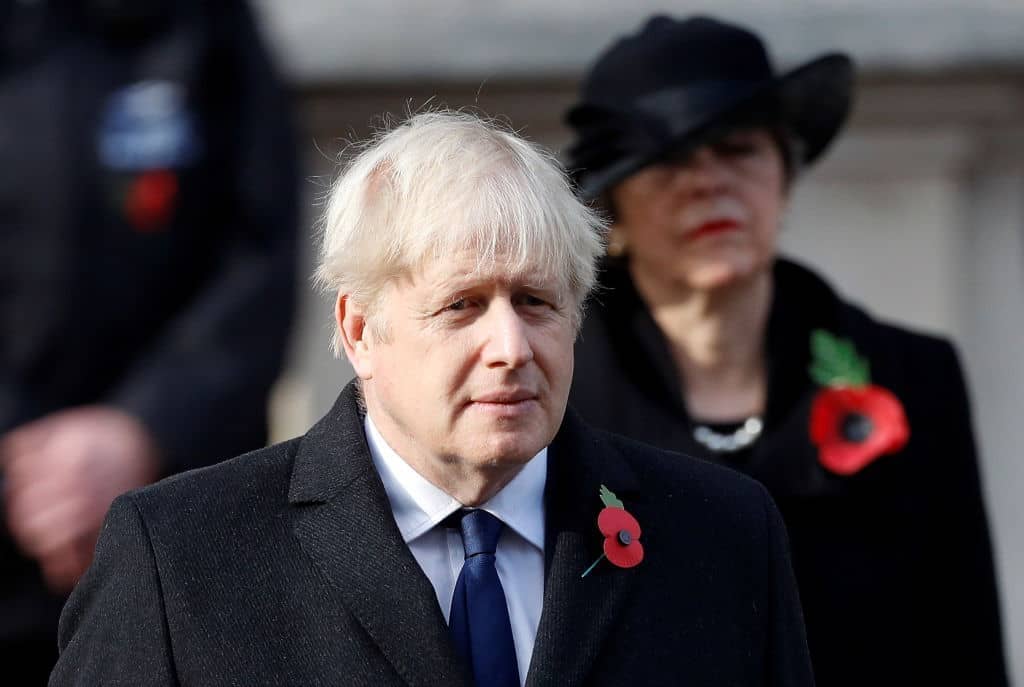The Tory party has always had an ‘awkward squad’ of MPs ready to stir up trouble against their party leadership at the slightest pretext. Its members used to be right-wingers marked out by their penchant for extravagant attire – stripey blazers and bow ties loomed large – and their failure ever to get near a career on the frontbench. These days the awkward squad is made up of a dispossessed establishment of former ministers who served under Theresa May. And it is led by May herself.
When the former PM stood up in the Commons today to question Home Secretary Priti Patel about her new deal with Rwanda to take asylum seekers, it hardly came as a surprise when she immediately stated her opposition to it on grounds of ‘legality, practicality and efficacy’.
Theresa May is now being compared to Edward Heath
May followed that opening broadside by making the highly emotive claim that the removals deal could lead to the increased trafficking of women and girls. Boris Johnson’s usual critics reacted with much excitement, as she must have known they would. Her contribution will now sit alongside a whole series of other jaundiced observations she has made in the Commons chamber about Boris’s administration. These have covered the aid budget, Brexit, Covid travel restrictions, partygate and even Afghanistan.
On the latter issue the Maidenhead MP accused her successor in Downing Street of an ‘incomprehensible’ failure to magic up an international coalition that could have kept a substantial military presence in the country to prop up its regime in the absence of United States troops.
The idea that had she still been in office she could have got on the phone and used her powers of persuasion to put together such a pipe-dream international deployment was totally risible. It indicated a descent into bitterness at the spectacle of Johnson succeeding where she had failed in taking the UK out of the EU.
Unsurprisingly May is now being compared to Edward Heath – another short-lived former PM who was unable to handle being eclipsed by a successor he hadn’t seen coming. But the comparison is unfair – to Heath. His ‘incredible sulk’ was chiefly prosecuted via glowering and curtness and excruciating though it was, never saw him become a rent-a-quote critic of his party leader.
The Channel dinghy problem started in earnest in 2018, when about 300 asylum-seekers arrived in this way. In 2019, that rose to 1,843. So although the level was far lower when May was in charge than it is now, the sharp upward trend had already got underway. There was no indication that she was any more capable of solving it than she was of cutting through the Gordian Brexit knot that she had largely created through her own dithering.
Yet May is more dangerous to Johnson than Heath was to Thatcher. Why? Because she retains close links to an array of other former ministers cross about being binned-off by him for foot-dragging on Brexit, as well as some backbenchers who regard themselves as ‘rising stars’ who never rose.
This group of Tory parliamentarians, numbering at least two dozen, is at the core of a continuing soft plot to eject Johnson and replace him with a more dependably pro-establishment figure. They almost succeeded in the winter when partygate was running white hot. They are likely to have another go after the local elections.
Mostly representing rich home counties safe seats, such as May’s, were they to succeed then the party’s remaining appeal in working class ‘Red Wall’ constituencies in the Midlands and the North would surely collapse.
In their readiness to undermine Conservative prospects in key swing seats they are the mirror image of the likes of Dawn Butler and Richard Burgon on the Labour benches. But at least members of the Socialist Campaign Group do not have the front to market themselves as moderates.







Comments